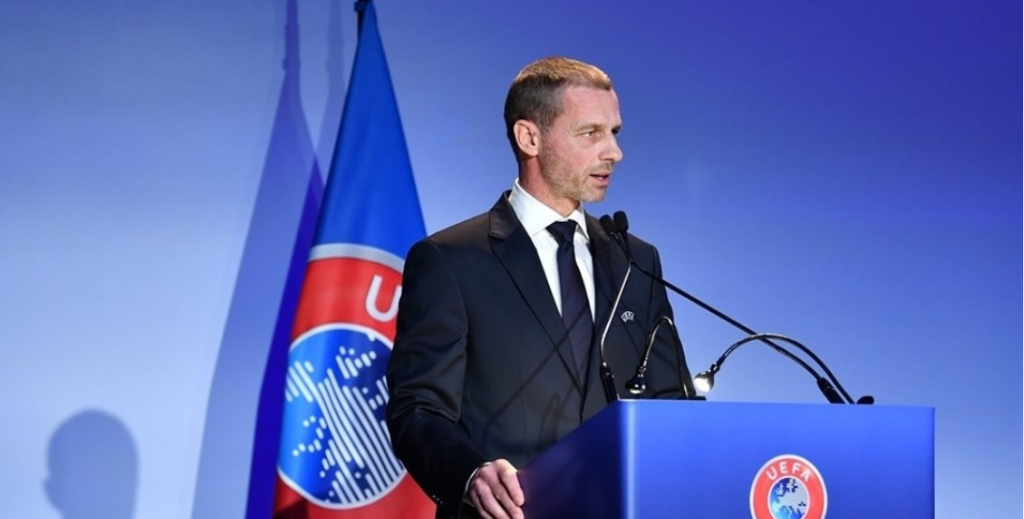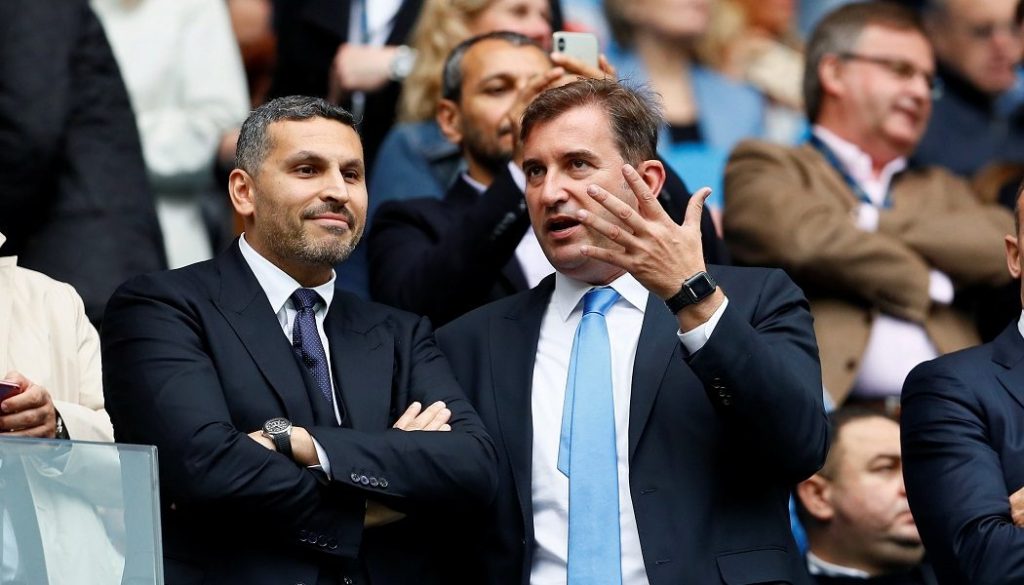Member Insights: Where Do Recent Events Leave The Future Of Financial Fair Play?
August 13, 2020
The Court of Arbitration for Sport (CAS) recently handed down its decision in the matter of Manchester City FC (MCFC) v UEFA. The decision had been much anticipated in sporting circles given the stakes and the fact of UEFA’s Club Licensing and Financial Fair Play (FFP) rules, that were put in place to regulate the spending of football clubs, being put under the judicial spotlight.
As discussed below, MCFC came away from CAS with a victory against UEFA. In light of this decision, and the recent financial turmoil imposed on clubs by the Covid-19 virus, questions are being asked about the future of FFP. Below, Tom Edwards and Alex Haffner review CAS’ decision and discuss the future of FFP.
MCFC v UEFA: The Line-Ups And Key Facts
The proceedings before the CAS were an appeal by MCFC against a decision of UEFA’s Adjudicatory Chamber. The investigation against MCFC initially arose out of leaked emails that were obtained by investigative journalists as a result of email hacking. UEFA handed down its decision in February 2020, in which it concluded that MCFC had disguised equity funding as sponsorship income. This was a problem because the FFP rules specifically set limits on the amount of equity funding a club can receive. The effect of the alleged breach was that, in the eyes of UEFA, MCFC had artificially inflated its commercial income by over £200m, and therefore intentionally breached the FFP break-even rules which set the allowable losses of each club over a three year period. As a result of UEFA’s sanctions, MCFC were handed a large fine and banned from European competition for two seasons.
A major issue in the proceedings (certainly in the press), was whether the sponsorship provided by Etisalat would potentially fall outside of the limitation period applied to the charges from UEFA.
The proceedings centred on alleged equity funding from the owners of MCFC, acting through two investment vehicles, jointly referred to in the proceedings as ADUG. UEFA alleged that equity funds from ADUG had been channelled through two sponsors, Etihad and Etisalat, which UEFA alleged were connected to both MCFC and ADUG, and which did not comprise legitimate sponsorship funds, but were a deliberate attempt to circumvent the limits on allowable equity contributions.
Were The Charges Against MCFC Time-Barred?
A major issue in the proceedings (certainly in the press), was whether the sponsorship provided by Etisalat would potentially fall outside of the limitation period applied to the charges from UEFA.

UEFA President Aleksander Čeferin
Article 37 of the UEFA Club Financial Control Body (CFCB) rules states that a prosecution is barred after five years for all breaches of the [FFP]. Therefore if any charges related to the period more than five years before the prosecution took place, those charges would be inadmissible in these proceedings.
Whether or not the limitation had expired depended upon the interpretation of when the prosecution was deemed to have taken place. The CAS panel determined that the prosecution took place when the charges were formally filed against MCFC. In the present case, this was the issuance of the referral decision to the Adjudicatory Chamber on 15 May 2019. Therefore the panel had found that it could only look to charges against MCFC arising from breaches taking place on or after 15 May 2014.
Alleged breaches arising out of financial statements filed with The FA for the years ending May 2012 and May 2013 were therefore time-barred. Actions arsing out of break-even calculations over the same period were also time-barred.
“The panel did not find it credible that a large company such as Etihad would have been able to hide large amounts of money being passed through its accounts to MCFC without it being noticed.”
UEFA were therefore prevented from charging MCFC for any breach arising from the provision of funding by Etisalat as the breach fell outside of the limitation period.
As for the funding by Etihad, the panel found that the payments received in 2012/13 were time-barred, but the payments made to MCFC in 2013/14 and 2015/16 were made within the limitation period, and these charges could therefore proceed.
Did MCFC Disguise Equity Funding As Sponsorship Income?
The key question remained whether the club had disguised payments from ADUG as sponsorship payments from Etihad. UEFA contended that this is exactly what had happened, whether by ADUG directly providing money to Etihad which was then paid to MCFC, or by ADUG directing other third parties to provide the funds to Etihad, which would then be passed on to MCFC. UEFA contended that the leaked emails (which were written by key senior officials of MCFC) proved that the club had arranged for equity funds to be paid to MCFC via its sponsors to disguise the true source of such funds.
However, the CAS panel instead found that the leaked emails by themselves were not sufficient evidence to support the finding that MCFC had provided incorrect information by UEFA by disguising equity contributions as sponsorship. The emails only showed that the arrangements had been discussed, not acted upon. Indeed, the panel was fairly critical of UEFA when addressing this point, noting that for UEFA’s interpretation of the facts to be true, it would have involved a vast conspiracy involving multi-national companies, large accountancy firms, and possibly the government of Abu Dhabi. The panel did not find it credible that a large company such as Etihad would have been able to hide large amounts of money (allegedly from ADUG) being passed through its accounts to MCFC without it being noticed. Witness evidence from senior Etihad figures supported this assertion.
Based on the evidence, the majority of the panel was not comfortably satisfied that equity payments had been disguised as sponsorship, and the panel was not comfortably satisfied that the Etihad sponsorship payments were procured to be funded by ADUG or unidentified third parties.
Did MCFC Fail To Comply With CFCB Investigation?
The CAS panel found that MCFC should have complied with UEFA’s request to make certain witnesses available during the Adjudicatory Chamber proceedings (notably the authors of the leaked emails). In addition, MCFC withheld the identity of an individual that UEFA was seeking to identify until long after the issue could have been clarified by MCFC. Further, MCFC only partially complied with UEFA’s request to provide the full leaked emails and their email chains over a year after the initial request by UEFA in the present proceedings.
The panel considered that the above were reasonable requests by UEFA and MCFC had no reasons for their failure to produce the documents and witnesses. MCFC had therefore breached their obligation to cooperate with UEFA, which was a key pillar of the FFP regulations, and MCFC’s fine was upheld (although reduced) on this basis.

The panel did find that, at times, MCFC had been very reluctant and, at times, uncooperative in providing UEFA with the information requested (copies of the leaked emails and their email chains in full, along with certain witness testimony).
However, the panel reasoned that while MCFC had only partially complied with UEFA’s four evidentiary requests, as UEFA did not pursue these requests further no adverse inference could be drawn from MCFC’s failure to provide such information in full.
The goal of FFP is therefore not to act as a leveller for all clubs (as higher income allows higher expenditure) but to ensure clubs do not spend beyond their means.
The Impact Of Covid-19
It is no exaggeration to say that Covid-19 could spell financial disaster for some top tier clubs. The huge loss of ticket revenue, combined with possible repayments of broadcasting receivables has left clubs with a hue black hole in their yearly accounts (it was recently reported that FC Barcelona’s president said the club was expecting to receive only around 30% of its estimated 2021-21 income, with the club losing €200m between March and June of this year). The financial impact has already been seen to some extent, with a markedly slow summer transfer window, and with major clubs such as Arsenal announcing staffing cuts or redundancies. Undoubtedly, the longer the virus continues to affect clubs, the worse the resulting financial position will be.
In brief, the FFP rules allow clubs participating in European competition (further rules are applied at each domestic league level) to provide certain financial monitoring information to UEFA, and to comply with the break-even requirements. This allows clubs to make a €5m loss over each three year period, though it can be exceeded by a further €30m if such extra loss is covered by equity contributions to the club (these are the same requirements MCFC were alleged to have breached).
The goal of FFP is therefore not to act as a leveller for all clubs (as higher income allows higher expenditure) but to ensure clubs do not spend beyond their means, supposedly making football clubs more financially sustainable. However, the rules really only achieve this measure if a club obtains similar income over the reporting period. The FFP rules arguably don’t protect clubs from sudden and potentially long-term losses of income. UEFA have temporarily relaxed the FFP requirements for the current season (noting most clubs are expect to have large losses), perhaps indicating the FFP rules’ inability to assist clubs with large scale financial crises’.
What is clear, is that the covid crisis has asked major questions about the sustainability of the financial industry of football.
Fladgate Comment
The landmark case involving the FFP regulations was undoubtedly resolved in the favour of Manchester City, but it was not perhaps the overwhelming victory MCFC were looking for. It is clear that at least some of the claims against MCFC were thrown-out as they were time-barred. The charges relating to the Etihad payments simply hadn’t been sufficiently evidenced by UEFA, as a result of what appears to be a failure by UEFA to continue investigating the issue. UEFA clearly thought the leaked emails were all the proof that they required, but CAS drew a clear distinction between showing that matters had been discussed, and those matters actually taking place.
One result of CAS’ decision which is clear, is that UEFA clearly did not utilise their full investigatory powers (i.e. not following up on evidentiary requests, or being satisfied with only part fulfilment). Many will claim that it was UEFA who dropped the ball on this investigation, rather than the underlying rules being flawed in any way. The decision isn’t therefore necessarily a knock-out blow for the FFP regulations, and we expect UEFA to beef up its investigatory powers in the near future. UEFA may also decide to revisit the rules of disclosure regarding proving the source of funds, especially regarding sponsorship payments.
It is possible that UEFA may review the FFP regulations following the covid-19 affected period, perhaps by imposing a maximum expenditure limit on clubs, or insisting that clubs hold certain cash reserves in case of crises.
What is clear, is that the covid crisis has asked major questions about the sustainability of the financial industry of football. UEFA will certainly feel they have a duty to protect European competition from such crises’ in future, so may enact changes to the FFP in this regard.
Alex Haffner – Partner, Tom Edwards – Associate, Sports Business Group – Fladgate LLP


